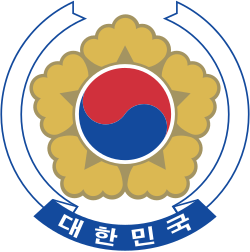| |||||||||||||||||||||||||||||||||||||||||||||||
All 276 seats in the National Assembly 139 seats needed for a majority | |||||||||||||||||||||||||||||||||||||||||||||||
|---|---|---|---|---|---|---|---|---|---|---|---|---|---|---|---|---|---|---|---|---|---|---|---|---|---|---|---|---|---|---|---|---|---|---|---|---|---|---|---|---|---|---|---|---|---|---|---|
| Turnout | 77.74% ( | ||||||||||||||||||||||||||||||||||||||||||||||
| |||||||||||||||||||||||||||||||||||||||||||||||
 | |||||||||||||||||||||||||||||||||||||||||||||||
| |||||||||||||||||||||||||||||||||||||||||||||||
| This article is part of a series on |
 |
|---|
Legislative elections were held in South Korea on 25 March 1981. [1] The elections were held following coups in 1979 and 1980, with major opposition political figures including Kim Young-sam and Kim Jong-pil barred from running and the Democratic Republican Party of late president Park Chung-hee forcibly dissolved. Kim Dae-jung was arrested on 17 May 1980, and was sentenced to death on a of "inciting rebellion". While ostensibly multi-party, the elections are widely considered to have been fraudulent, with opposition politicians being heavily vetted by the Agency for National Security Planning and the South Korean Army Security Command.
Contents
The result was a victory for the Democratic Justice Party, which won 151 of the 276 seats in the National Assembly. Voter turnout was 78%.

